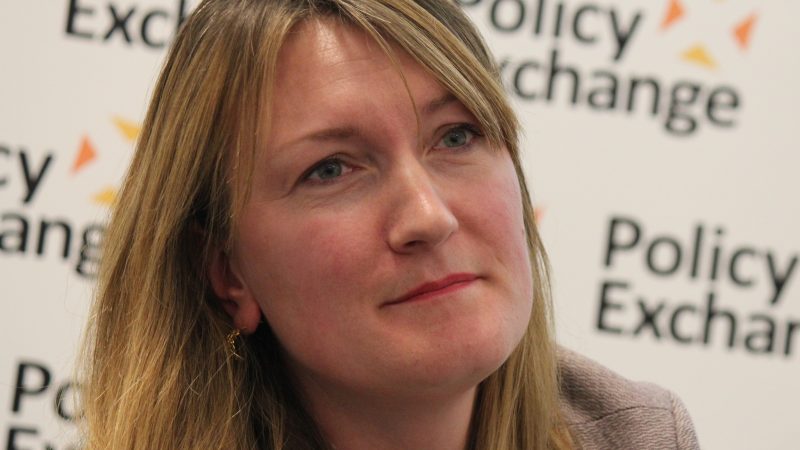
Downing Street has appointed former journalist Allegra Stratton as its new press secretary, which means she will lead the No 10 daily televised press briefings starting next month. Who is Stratton, and what does her new government role entail?
After graduating from Cambridge, Stratton took up a role as a producer for the BBC. Over the next few years, she would move between the BBC and the foreign desk for The Times, before eventually being appointed as a political correspondent for The Guardian. She left The Guardian in 2011 to become a correspondent for the BBC’s Newsnight. Four years later, she moved to her final job in journalism as national editor for ITV, where she co-presented Peston on Sunday.
Her work has not been without controversy. In a Newsnight segment on housing benefit and welfare reform, Stratton interviewed a young woman who lived with her parents and wanted to move into her own home. Very little is said of the interviewee’s own situation, but in a later section Stratton discusses how young people living with their parents “don’t have a job” and “have fights”. The implication was that the interviewee was unemployed, which was not the case. In the end, the interviewee filed a complaint to the BBC over Stratton’s behaviour and even launched a petition asking Newsnight for an apology, which the programme eventually supplied.
Stratton was also the subject of a damning Private Eye report at the time. The magazine said the political editor of Newsnight had “dismissed other potential interviewees offered up by Tower Hamlets council, including a couple with four children who had both lost their jobs and faced having to move out of London”. It was reported that Stratton told council officials, “You must have got people living on benefits as a lifestyle choice!”, before she “shouted across a crowded open-plan office floor that “people should think about whether they can afford kids before they have them!””. Sounds like her views match up well with those of the Prime Minister, who once wrote that single mothers have produced “a generation of ill-raised, ignorant, aggressive and illegitimate children”.
The journalist, who told The Telegraph four years ago “I don’t do spin”, left her role at ITV in April this year to become director of strategic communications for Chancellor Rishi Sunak. She is the latest in a long line of journalists who have transitioned into Downing Street roles. Robbie Gibb edited the BBC’s political output before being appointed Theresa May’s director of communications in 2017. Alastair Campbell worked for The Mirror before becoming chief spin doctor to Tony Blair. Stratton has long been plugged into the Conservative Party, being married to The Spectator‘s James Forsyth – the magazine once edited by Boris Johnson, which currently employs as commissioning editor Mary Wakefield, who in turn is married to the Prime Minister’s top adviser Dominic Cummings.
Stratton’s appointment to Sunak’s team coincided with a huge rise in profile for the new Chancellor. From photo ops in Wagamama as he launched Eat Out to Help Out to putting his signature on every new economic support programme, Sunak’s public relations in recent months have been a sleek affair. It’s no coincidence that polls have suggested he is the most popular Chancellor in 40 years, as well as the highest-rated Conservative politician currently in parliament.
The new press secretary’s transition will likely be a relief for Johnson, not least due to the speculation in recent months that Sunak’s newfound success and growing profile will make him a potential future rival for the role of Prime Minister. Although Stratton is a political appointment by the Conservative Party, as a special adviser her £100,000-a-year salary will be paid for by taxpayers.
In her role, Stratton will be the face of the government’s new TV briefings. Currently, lobby journalists grill the Prime Minister’s spokesperson off-camera every day, but the format will convert the briefings into televised daily updates open to the public – similar to the format used by the White House. Johnson has said this will offer voters more “direct engagement” with the government. Describing the initiative as “obviously a political move” that would risk “unbalancing the political discourse”, Keir Starmer has revealed that he will launch his own regular televised press conferences. The Labour leader expects these sessions to be carried by national broadcasters, much like his response to Johnson’s address to the nation on Covid-19 in September.




More from LabourList
‘Council Tax shouldn’t punish those who have the least or those we owe the most’
Two-thirds of Labour members say government has made too many policy U-turns, poll reveals
‘Two states, one future: five steps on the path to peace for Israelis and Palestinians’